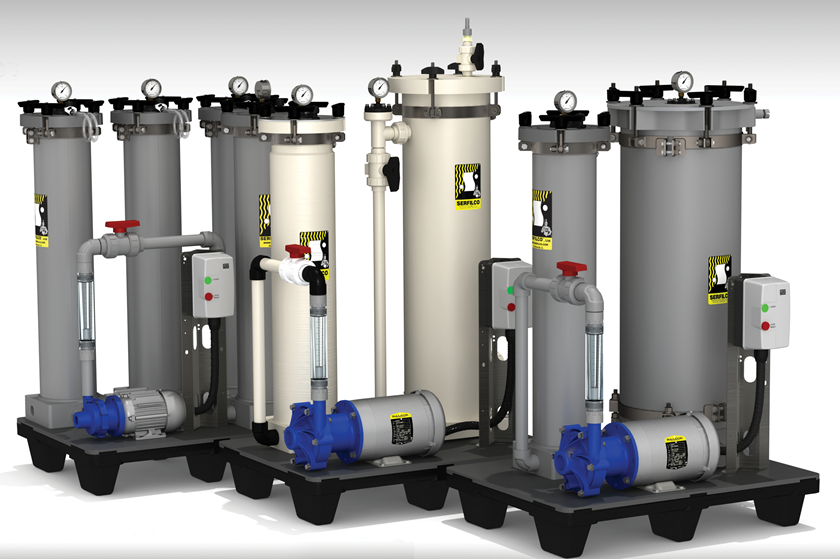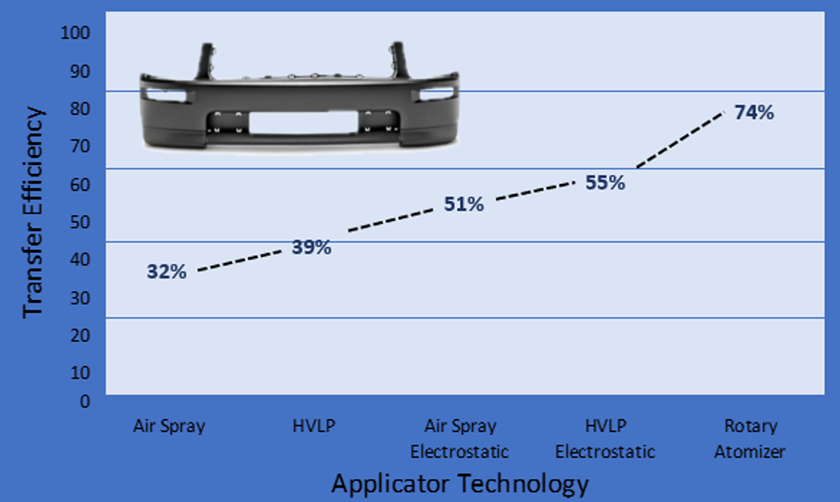The Present Situation in The Electroplating Industry as Regards Government Restrictions and Government Business (1942)
by
William McCord
Technical Editor’s Note: The paper begins with introductory remarks by Chairman Maurice R.
#management #nasf #surfin
by
William McCord
Featured Content
Technical Editor’s Note: The paper begins with introductory remarks by Chairman Maurice R. Caldwell. A printable pdf version of this presentation is available HERE.
The first Educational Session of the 30th Annual Convention of the American Electroplaters' Society, held in the Ballroom of the Pantlind Hotel, Grand Rapids, Michigan, was called to order at ten o'clock by the President of the Grand Rapids Branch, Maurice R. Caldwell, who presided as Chairman of the meeting.
Chairman Caldwell: I believe we are ready to begin our first Educational Session. This morning session was designed, as you notice, to include the various representatives from Washington with whom we all work so much these days. We think we have three outstanding speakers this morning, representing the industry in Washington, and I am sure they will be able to give you as much information as anyone can. I believe it will be advisable to have all three of the papers presented before we open the meeting for discussion.
Our first speaker is Mr. William "Bill" McCord, whom most of you know. He has been very active in the Society for years and has been technical advisor with the McCord Radiator Manufacturing Company in Detroit for approximately 30 years. Several months ago, he was appointed to his present position in Washington as Chief of the Electroplating Durable Goods Branch of the War Production Board.
At this time Mr. McCord will speak to us on "The Present Situation in the Electroplating Industry as Regards Government Restrictions and Government Business."
Mr. McCord: I dislike very much to read a speech, but I am going to ask your indulgence, for two reasons: One is that, as some of you fellows may know, I have been a trifle busy in the last couple of weeks and I really haven't had a chance to memorize it, and the other reason is that for the first time in my life, what I say has to have approval in advance . . . There are faces in the audience grinning at me - they know perfectly well that when anyone puts me on a platform, I am a pretty wordy sort of a guy, and I am liable to go off on all sorts of tangents . . . The result is that just to be absolutely sure that I am going to stick to the text, I am going to read it exactly as I wrote it.
I may say parenthetically that this had to be written about three weeks ago and that in some slight respects, perhaps I would not have said precisely what I am saying today, if I had been writing it yesterday.
It may strike you as entirely unnecessary and even redundant to have a speaker start an address with the statement that this country is at war, but if you had handled the quantities of interviews and correspondence which I have since Pearl Harbor in which it was evident that this fact was making no particular impression, you would understand why I start in this manner.
I reiterate, this country is at war. It is not merely at war; it is at war to prevent you from becoming a slave. There has been altogether too much disposition to take the attitude: "Oh yes, we are at war and oh yes, we must win the war but that has nothing to do with me, personally." The hell it hasn't! Maybe you are willing to spend the rest of your life with a gestapo agent showing you where to dig, but I certainly am not.
We must win this war, and we must win it, regardless of what it may cost any individual either in money, life or property. That is a serious statement and its implications are not pleasant. However, it is a fact which we must all face squarely. Our choice is between winning, no matter what the cost may be to us individually, or virtual slavery.
The trouble is that too many individuals have refused to recognize that there is no alternative choice. They want to win the war, but at the same time they do not want the winning to cost them anything in any way. It can't be done. We are all going to take it in the solar plexus. The severity of the blow may not be equal in all cases, and probably will not, but if anybody thinks he personally is going to entirely escape it, he is the world's greatest optimist.
We are going to send millions of young men out to do battles for you and for me, and perhaps lose their lives in the attempt. They do not want to die or be maimed for life any more than you do. It is not entirely impossible that before this is over that men sitting in this audience before me today may be lying dead in unnamed graves on foreign battlefields. That is not a pleasant picture, but it is one that should be carried in the minds of all of us at all times and taken into consideration whenever a question is raised which involves some personal sacrifice.
We are going to win this war. The American people will not fail when it comes to a showdown. We have been accused of being pampered and soft, but gentlemen, there is no better soldier on earth than the American makes when the necessity arises. He has vim, dash, fire and intelligence but above all he has guts. Our history is comparatively short, but it is full of that fact. Valley Forge, the Alamo, Pickett's Charge at Gettysburg, San Juan Hill and going into the Argonne without artillery preparation while French and British generals stood aghast. But above all gentlemen, the heroic defense of little handfuls of men at Wake Island and the Bataan Peninsula stand out. If we are getting soft, we must have been awfully hard before.
These men are not going to have died in vain. I don't suppose there is an American living who has not made a silent resolve that sometime, somehow, someway, we will make the Japs sorry they ever heard of Wake Island or the Philippines.
We have the manpower, and it is the right kind of stuff to do the job. If this were just back in the times of the Crusades when opposing armies lined up, and each individual picked out somebody on the opposite side that he thought he could lick, and they went to it with a multiplicity of more or less personal combats, we would probably end this thing in a hurry.
But modern war is not won that way. Individual battles are won by tanks, airplanes, guns and ammunition, and the commander who has the preponderance in those respects generally comes out on top.
In other words, individual battles are largely won behind the lines. The goods have to be produced and they have to be transported to the places where they can be used to advantage.
In order to produce the vast quantities needed for modern warfare, it requires raw materials, and particularly metals, in previously unheard of quantities. Some of the astronomical figures which I have heard casually mentioned by representatives of our armed forces have made me fairly dizzy. When anyone begins to count in billions, my mind refuses to grasp it and I think that would be the case with most laymen.
We have always had a more or less smug self-complacency that this country was the one most blessed with natural resources, and that we could always get anything we wanted.
It is difficult for anyone to change his viewpoint in that respect. However, we are in for a rude awakening. The plain facts are that we haven't enough copper, we haven't enough aluminum, we haven't enough nickel, we haven't enough chrome, we haven't enough cadmium, we haven't enough tin, we haven't enough rubber, we haven't enough wool, we haven't enough steel, and a lot of other materials. About the only things in which we really have any great surplus are gold, silver, cotton and wheat. So far, we have enough lead and zinc.
We are by no means the land of abundance that most of us thought we were. Even where we have the ores, such as in the cases of aluminum, copper and steel, we lack sufficient facilities for converting them into form in which they can be used. But in some very important cases we haven't the raw materials, such as tin, rubber, and chrome. There is no use disguising the fact that those deficiencies are going to hurt.
When we are faced with the fact that there is not sufficient material of any given kind to meet all needs, there is no option left but to use what materials are needed for war purposes, and then if there is any left over to use that to the best possible advantage in other ways.
I don't suppose there is a single soul in this room that would take issue with that general statement.
The trouble is that when the application of the general principle hits anyone personally, that too many of us forget it, and think only of the personal angle. I can understand the feeling to some extent, and there is an element of justification. I am perfectly ready to admit that I think a lot of people have material in their possession which they should not have. It is a little difficult in some cases to understand how they have so much. However, those stocks are being frozen as fast as located, and they will be taken away from them.
Individuals who are asked to forego use of critical materials in their own production see surplus stocks in the hands of others, and naturally they are skeptical.
I suppose that at least once a day I am asked in confidence whether these supposed shortages are just somebody's crazy figures. If I succeed in nothing else today, let me get the true picture about that over to you.
This picture has been changing so fast that today's figures mean nothing tomorrow. The situation is analyzed in the light of events as they then appear, and then something like the fall of Singapore occurs, and the picture is completely changed in a thousand different ways. The figures on which you were given information are just plain screwy, in view of developments.
The military demands of the United States have increased by leaps and bounds. I don't suppose that anybody on earth can possibly be sufficiently well informed and sufficiently wise to accurately foretell what will actually be required by the United States alone in the year 1943. In addition to that we have become the arsenal of the whole United Nations. Will Russia next year be able to produce as much in war materials as she is now doing? Will England? Or will we have to take over those additional burdens? We hope not, and have no such expectations but in the last analysis nobody can answer with any authority.
So when I say to you that the shortages are real and not the figment of anyone's imagination, that is probably an under-statement. Let's run over them.
Aluminum: Not enough for a long time to come.
Rubber: Not enough and with poor chance that synthetic will arrive in time.
Copper: Not enough and with little or practically no chance there ever will be.
Tin: Not enough and with little or practically no chance of betterment.
Chrome: Very tight, however, the Montana ores may provide sufficient chromic acid by the end of this year although this does not help ferrochrome materially.
Cadmium: Not nearly enough to take care of war demands and many specifications have had to be changed.
Nickel: Not nearly enough and with practically no hope that there ever will be.
That does not leave very much for any plater except war work.
He would still have gold, silver, lead and zinc with which to plate for civilian usage.
So far, we still have plenty of gold, silver, and lead. We also have been able to meet all demands in zinc.
You have gold and silver for ordinary usage and not much else. Immediately the cry is raised that they are too expensive. Now get this point. We haven't a free market. Prices are pegged and they are pegged on a relationship which existed before the war. This is no indication of what their relationship would be if a free market existed. It is entirely artificial at this time without taking into effect the changes caused by the war. I sincerely believe that if a free market existed, and all the opposing elements were allowed to compete for each individual metal, that you would be surprised to find that a pound of nickel or tin would probably command a higher price than a pound of gold or silver. We need and can use the nickel or tin, but we have a great surplus of gold and silver for which we have no immediate need.
Our ideas regarding values are so fixed that it is extremely difficult for us to appreciate this change. It is not that gold and silver have become less valuable but that due to extraordinary circumstances, tin and nickel have become infinitely more valuable. So when you are told that you cannot use what seems to you an inconsequential amount of tin or nickel or something else, you just stop and ask yourself whether you would want to use it, if you had to pay the pound price of gold. Furthermore, when you consider gold or silver as a covering, do not do it with the old relationship in your minds, but with the realization that actually you may be using a cheaper metal than nickel or tin. This is the economic side, but the really important one is that your country needs that nickel or tin, and if you are going to remain a free man, that they must use it.
Perhaps you are not as constricted regarding civilian usage as you think you are, provided you will get over some of your pre-conceived ideas regarding values, but you are still pretty constricted. Unfortunately dollar values still exist, and I recognize that people who buy things pay in dollars and they will not buy, if the article costs too much, according to their former sense of values. So while you may be able to use some gold and silver, where formerly it was not even considered, particularly as time goes on and the demand for any kind of goods increases, necessarily its usage will be limited.
In other words, you may continue to do a little plating in special fields for Civilian Consumption, but it will not be of any great magnitude. Gold, silver, zinc and lead plating may even become more popular than in the past. However, nobody will get rich on the amount that will be done for civilian purposes.
That leaves war work. I am not going into any detailed discussion of the particular applications of plating in military usage. Dr. Blum and I have worked together in that respect and he will discuss the particular applications. However, I do want to point out the over-all picture as I see it.
In the first place, the plating trade is lucky. As soon as I sit down, about a hundred men will jump to their individual feet and say, "What do you mean lucky, when my plant is shut down?" The statement still stands. Individually, you may be unfortunate, and that may continue without much hope for you, but the fact remains that the plating trade as a whole is lucky. They have lots of work to do, and will continue to have it for the duration.
I can point out plenty of industries to you that were told to stop entirely their former system of manufacture and to go out and find something to do for war purposes. Nobody has told you to stop plating. They have told you that you cannot plate with certain metals for certain purposes, but so long as you stay away from those prohibited areas, you can continue to plate. Also there is a very large volume of war plating to be done, and if you are able to get enough of it, you can continue your previous type of manufacturing without essential change, as was necessary with so many industries.
Now that distinctly does not mean that every individual plater is going to be able to go along just as he always did and have plenty of work. There simply is not enough work to go around and when there isn't enough for everybody, someone is bound to get hurt.
I have been trying for months to get an accurate picture into my own mind, as to just what percentage will remain in the plating business and what will have to go out of it, and I am frank to confess that I still do not know.
In order to arrive at that percentage two facts have to be known that as far as I can discover are known only to God. The first one is just how much war plating is there going to be. I have already told you that today's figures mean nothing tomorrow as far as totals to be produced are concerned. Added to that is the difficulty that articles which are specified for a plated finish today may not be so specified tomorrow. They are coated with a given metal, and the supply of that metal becomes inadequate or progressively tighter, and it becomes necessary to find places where it can be eliminated. Specifications are changed and something else is substituted. Vice versa, some material becomes scarce and another material is substituted but the latter material has to be protected against corrosion, so a plate is added. The steel cartridge case is a good illustration of this.
The picture changes rapidly. All I can say has to be in very general terms and subject to change without notice. However, I think I am safe in the following generalizations:
- There will be a very considerable volume of war plating that will continue to be done.
- The total volume of this has increased rather than diminished as time went on due to both increase of amounts required of specific articles, and also to the addition of plating to articles not previously so coated.
- Our belief is that this tendency toward increase rather than decrease is apt to continue although this can by no means be any surety.
However, we do not know just how much war plating there is to be and in the very nature of things, never can know. Neither do we know just how much plating capacity there is in this country. Neither do you, and neither does anyone else. We probably have as good information on the subject as exists, but it is a long way from accurate.
Not knowing either the demand or the capacity for meeting it makes it a trifle difficult to give in percentage the amount of plating capacity that will be used for war work. However, I am going to give you a guess figure.
My best guess is that there will be about 50% as much plating as prior to the war, but if anybody tries to make me substantiate it, I will immediately retire from the field, because I do not know how I arrived at the figure any more than I know why an article when first seen costs about $5. I probably would not be far wrong, but I have no knowledge of the mental process by which I arrived at the figure. It can only be a guess, but it is probably a pretty good guess.
However, that does not mean that everybody is going to do 50% as much business. It is not as simple as that. Some platers will have 100% and others will have none. There are all kinds of factors involved. Some plating plants are set up with equipment that is not readily adaptable to anything but the plating of the particular article for which it was designed. The chances of finding a war article to which it can be converted are pretty slim. In addition, most plating will be done by sub-contractors working for some manufacturer who holds a prime contract for some article which requires plating. Naturally if you happen to be located in a territory in which there are not prime contracts placed which require plating your chances of securing any plating business would not be very good. On the other hand, you might be located where the number of contracts placed are in excess of the capacity to plate. There will be no uniformity about it.
The third factor is that most jobs are going to be volume. That would seem to indicate that small platers would probably find it pretty difficult to secure any of this business. I still think that the cards are stacked against them, but I have been rather surprised to find individual cases of rather small platers who are actually running 30% to 50% of former capacity on war orders. In fact, I have known some of them to be so enthusiastic that they wanted to increase capacity.
Another factor in the situation is that a considerable part of the 50% will be made up of plating in a form that could not be handled in an ordinary plating plant with ordinary equipment. For instance, there are 24 tin-plating plants going in for electro-tinning instead of hot tin-dipping commercial tin plate. My best judgment is that there will be a great deal more pre-plated sheet used than formerly. This is a specialized game that cannot be handled with ordinary equipment. In addition, there is bound to be a certain amount of equipment go in where it did not exist before to take care of special requirements on production lines, or where adequate facilities are not available in the district.
When all this is deducted from 50%, our best judgment is that not more than 35% to 40% of the equipment used will be actually employed.
That may be considered as not particularly alluring but I remind you that even if only 35% of former equipment finds employment that this is infinity times zero, which is the amount allotted to many industries. Again I say, you are lucky.
Now let's correct a very popular misconception about how war business can be secured. The War Production Board buys nothing, and no government agency buys very much plating as such. Various agencies of the government, such as the War Department, the Navy, the Maritime Commission, etc. buy finished articles which may require plating in whole or in part.
Your individual plant may be equipped to furnish some finished article complete and thus utilize your plating equipment. In that case, pick out the specific article which you feel that you can handle, and apply either to Washington or to the nearest local branch of the War Production Board, and they will tell you how to secure the necessary information in order to bid when such goods are to be bought.
However, let me stress that the first thing to do is to pick out the article that you want to make and are equipped to make. Too many manufacturers seem to think that all they have to do to get government business is to write a letter to Washington, saying that they want some business. They will probably be just about as successful pursuing that type of salesmanship as they would have been to have picked out some manufacturer before the war and asked the purchasing agent what he wanted to buy without any indication of what they had to offer. Selling is selling regardless of the customer. The main distinction is that the various agencies of the government do not have to be sold on the advantages of buying. They are anxious to buy provided they can secure articles to suit their purposes.
But if you have only a plating plant with no other facilities, you have only one option. Your business, if you are to get it, must come as a sub-contractor from manufacturers in your home territory, who hold prime contracts covering articles which require plating. Your local offices of the War Production Board may be able to help in that respect, by telling you of contracts that are placed in your vicinity but in the main, the way you will get it is by leg-work among neighboring manufacturers. You never got business before by writing letters to Washington, or by sitting and waiting for it to drop into your lap, and you will not get it now. You will get it by shagging it. Of course, it is entirely possible that no orders requiring plating will be placed in your vicinity, and if that happens, pick out manufacturers possessing other facilities which you do not possess, and persuade them to bid on articles which require plating and which they would otherwise be equipped to make. In other words, pool your resources in the territory and get business that individually none of you could handle.
However, we again warn you that there cannot be expected to be enough plating to use more than about one third of previous plating capacity so that the odds are about two to one against you individually. The live ones will probably get the business, the others will get nothing.
This is the situation in regard to plants, but individually you are platers. The prospects for platers are better than for equipment. In other words, while perhaps only one third of existing equipment will be used, as the production total will probably be about 50%, the chances of continuing employment in the same field would appear one in two instead of one in three.
This covers what you might do. Let's see what you cannot do. We will run over the present restrictions on the plating of various metals individually. Gold, silver, lead and zinc have no restrictions as to usage, provided you can secure the materials. The same is true of cadmium but as the supply of cadmium is inadequate even for war alone, the chances of securing it for any other purposes are practically negligible. Tin falls into a similar category. There are no direct prohibitions against its use by plating, and as a matter of fact due to the ability to control thickness more closely by plating than by hot tin dipping it is probable that its usage by plating will actually increase in total rather than decrease. However, due to its extreme scarcity, it would be practically impossible to secure raw materials except for extremely essential purposes.
Likewise, the plating of chrome is unrestricted so far as we know, except for vending machines. In other words, if you can procure chromic acid, you can apply it directly to any base metal provided the part is not going into a vending machine. While the supply of the basic chromite is exceedingly limited in a general sense, due to the ability to secure low-grade ores, and the lessening of demand for chromic acid for composite coatings, it is our judgment while this cannot be entirely final that there will be adequate supplies for all who want to apply chrome directly to the base metal. But as soon as an under-coating is desired for the chrome, the condition changes.
I do not need to tell anybody in this audience that anyone who is plating nickel is breaking the law, and I am putting it badly that way, because it should be. He is not only a slacker from a patriotic standpoint but he is sticking out his neck in addition. You cannot use nickel as an undercoating for chrome, or for any other purposes, except virtually by special permission. We have about two-thirds enough nickel for this year's demands and it is not going to be wasted, just because somebody wants to. It is known that there is bootlegging but they will catch up with it.
The situation in copper is more complex. The M-9-c Order prohibited plating with copper where the purpose was primarily decorative. Most plates where copper was employed had two purposes. One was corrosion resistance and the other was decoration. Which was the primary purpose? You and I know that in most cases it was decoration, or you would have used zinc which would have given you far better corrosion resistance. However, a lot of platers virtually ignored the order on the ground that they were doing it primarily for corrosion resistance. They were not very honest about it. However, I want to correct any misconception that may exist about the future. We haven't anywhere near enough copper for purely military needs and under those circumstances the usage of copper for plating except for really essential purposes will not be permitted. Do not make plans on that basis.
There are other metals such as rhodium and indium. It is entirely possible that such metals may come into more general use, limited of course by amounts available. An acute general metal shortage exists and under those circumstances, it is likely that usage will be made of any metal that is available.
In conclusion, let's sum up a little. Plating for civilian usage will be curtailed, but there is and will probably continue to be a considerable volume of war plating. Prospects for individual platers vary exceedingly. Some will prosper while others will go bankrupt. There is nothing fair about that but it is an unavoidable condition of war. There is nothing fair about war. It is not fair that just because I happen to be 54 years old and have already lived most of my life in a condition of luxury that would have made the old Roman Emperors green with envy, should stay home while young chaps with all their lives before them are sent out to toil and sweat in foreign jungles and perhaps lose their precious lives. War just isn't fair in any way, and if you happen to be one of the unfortunates, you will simply have to chalk yourself up as one of the casualties. We recognize that this is cold comfort. Nobody is going to award you any posthumous medals or send any gold stars to your mothers, but you are a casualty of war just as surely as the boy that gets in the way of a Jap shrapnel.
This industry depends upon metals, and there aren’t enough metals for war purposes, so there are bound to be casualties, and the fact that there are going to be casualties cannot be allowed to interfere with the winning of the war.
We are not going to let MacArthur down. We are not going to let the Chinese down. We are not going to let the Russians down, but above all, we are not going to send out our kids to be slaughtered because somebody did not want to change his occupation or was trying to hold onto money that he never would have had, except for the system of freedom which we are all fighting to preserve.
We have a job to do. We are all equally responsible. It is my job and it is your job. Our individual welfare does not count until the job is done. Let's forget personal fortunes for the time being and stop petty bickering. If we all put our shoulders to the wheel, with the one idea paramount of keeping the wagon rolling, we will get this thing over in a hurry. Nothing can stop us. And then I would like to talk to this society again. I can be just as optimistic, as I have been pessimistic today and the picture I have in my mind of the eventual future of the plating business can only be expressed in superlatives.
I thank you.
RELATED CONTENT
-
A Protective Decorative Electrolytic Coloring Process for Aluminum
The main task of this work was to study the influence of the different parameters on the electrolytic coloring process for aluminum.
-
Electroplated Tin-Nickel Coatings as a Replacement for Nickel to Eliminate Nickel Dermatitis
This paper is a peer-reviewed and edited version of a paper delivered at NASF SUR/FIN 2013 in Rosemont, Ill., on June 12, 2013.
-
Electroless Nickel Coatings: Appearance, Gloss and Surface Morphology
For decorative coatings, appearance is the essential purpose for application, but also for functional surface finishes it becomes increasingly relevant as an added value on top of specified technical requirements. Appearance is affected by spectrum and intensity of incident light, roughness and morphology of the coating surface, optical properties of the coating material, eventual superficial oxide films, and individual perception. The predominant factor is surface roughness, which in turn depends on base material roughness, quality of substrate pretreatment, and nucleation and growth kinetics of the electroless nickel (EN) deposit. Interdependency of gloss measurements with roughness measurements and with chemical composition of coatings was investigated for new generation mid-P EN processes and compared to traditional ones.


















